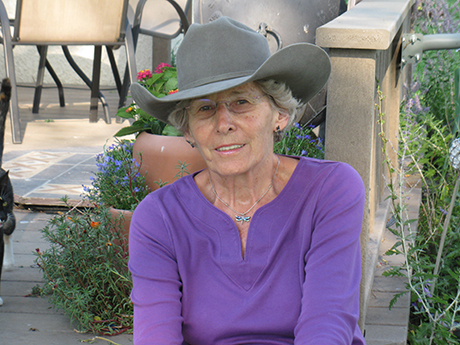Or so the old prospectors are said to have claimed. And they were right, at least where the Black Hills of South Dakota are concerned. As has always been the case, when word of a gold strike got around—and there’s no keeping a secret like that—all manner of folks flocked to the area to seek their fortunes. A few did strike it rich, but the majority nearly starved to death before moving on.
We did a spur of the moment runaway to the Hills last week; packed the camper and headed for Sheridan Lake, which is our second favorite get away destination, right behind Fort Robinson.
I’m always amazed at how quiet it is in those campgrounds. People with generators have to shut them off at a designated hour, but even when they are running, it’s not very noticeable. There are occasional shouts of glee from children in a neighboring campsite, or the ring of tent stakes being pounded in, and the swish of tires slowly passing, but it almost seems like the forest whispers and people’s voices are muted.
My children’s father used to say that if a man wants to attract women, he needs to be holding a baby or a toddler’s hand. It worked for him when he was single and used to take his sister in law and nieces to get groceries and do errands. He made sure to stress that the cuties were his nieces, early on. The way to attract conversation in a campground is to walk your dog. We meet a lot of interesting people that way, and had good discussions with travelers from St. Louis, Vegas, and other areas.
But the peace and quiet is self-contained in rural campgrounds. All manner of folks still flock to the Black Hills. Once you get back to the highway, the gold fields begin. Mining camps were always noisy and teeming with activity. I’m not sure how much, if any, gold is being dug out of the ground up there now, but plenty of cash is changing hands in tourist traps. We were there mid-week, but traffic was steady, and the commercial campgrounds were full. I’m puzzled that so many people choose to park among hundreds of other campers, in open places with no shade, and likely pay twice what we did in the forest. But where we go you can’t get satellite tv, and cell phones don’t work. I suppose those are a priority to a lot of folks. Which begs the question, why not just stay home?
Long lines of cars waited to get into Bear Country, Reptile Gardens, and all the other venues we passed. Likely it seemed calm to the natives after Sturgis week, but there were plenty of bikes on the road although campers outnumbered them. It looked like business as usual to us.
In Rapid City, I engaged in people watching while Bruce was in Safeway. Business as usual there too, but at least 80 percent of shoppers were wearing masks; the exact opposite of what I see in our area.
Our only cash contribution to the South Dakota economy besides gas and camp fees, was for a burger and ice cream at the roadside place near Hill City. They seem to be doing fine, we waited in line for twenty minutes just to order.
There’s still gold in them thar hills, but it’s mostly paid in, rather than taken out. Those old miners never would have guessed that all those years ago.

